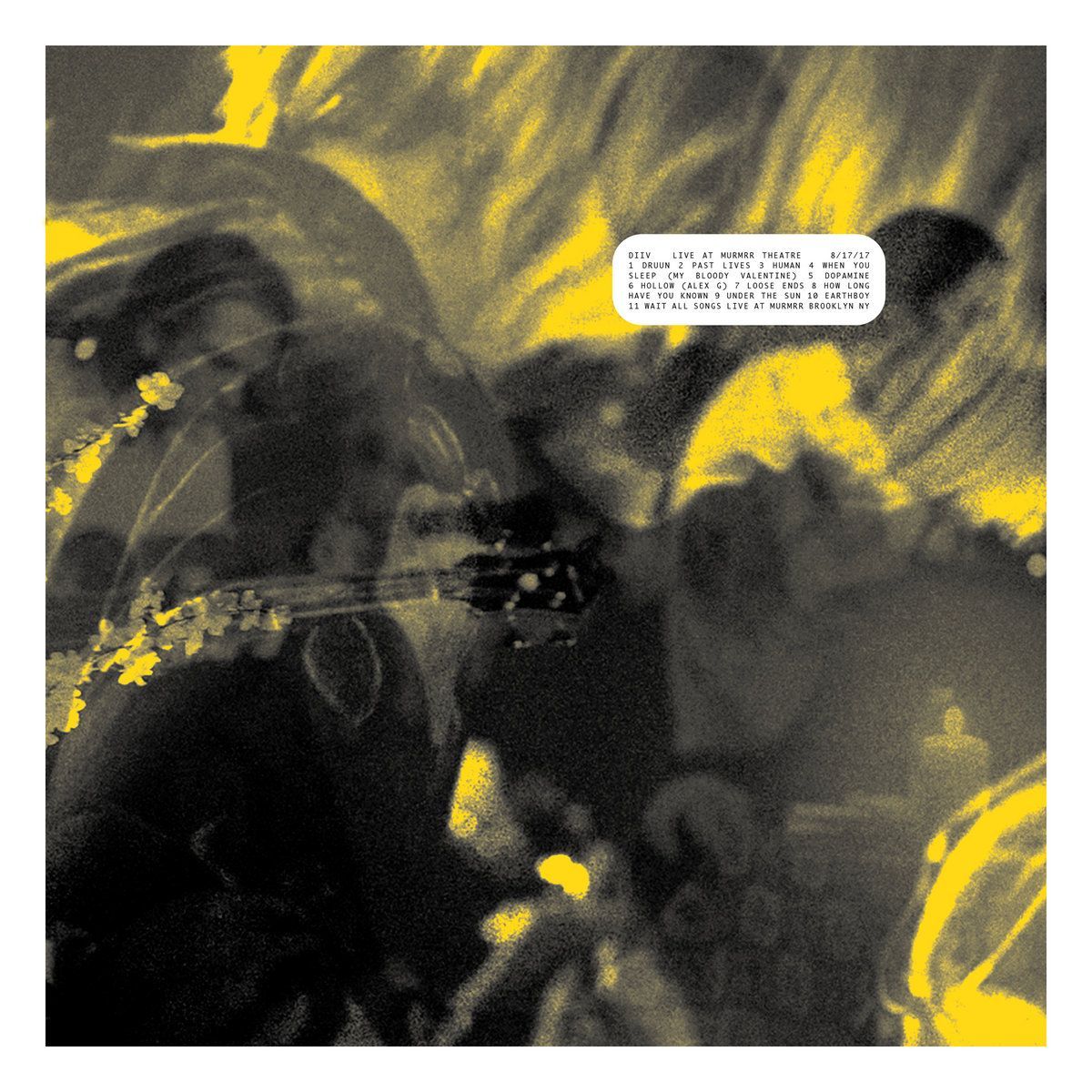When You Sleep
DIIV brings a slower paced, more intimate sound to a newly released live record.

Perhaps the definitive cover of My Bloody Valentine's "When You Sleep," from their seminal album, Loveless, is Memoryhouse's version from their 2010 Yours Truly live session. The song was breathlessly passed around the internet and gained Memoryhouse a fair amount of attention. When I saw Memoryhouse play live, I asked the band's Even Abeele if they were ever going to record a studio version of the cover. He told me they were setup to do just that, in New York, with James Iha from the Smashing Pumpkins, no less. Unfortunately, someone contributing to the session got in a car accident on the way to record. What a missed opportunity.
As compensation, I'll take DIIV's live album, recorded in 2017 at the Murmrr Theatre. The live recording is more hushed, introspective and slower than the band's studio recordings. With the more languid pace, you can actually understand the lyrics. Singer Zach Cole jokes at the beginning that it's DIIV's piano recital. The fourth song is a cover of "When You Sleep" that ranks up there with the Memoryhouse version. With it's sparse atmospherics harkening back to the 2010 Yours Truly Sessions, the DIIV version almost sounds like a cover of a cover, with the piano bearing a similarly heavy load.
The My Bloody Valentine cover is followed directly by my favorite song by DIIV, a heroin fix called "Dopamine." With this version and other songs on the recording, you get a more relaxed and starker realization of the songs than appear on the proper albums. It's done to gorgeous effect and is perfect for this time of year. Just huddle under a blanket by the fire and let it sink into you.
via Space Echo
Side note: Not to get all big business monkey when talking about a piece of art, but this release is the kind of content strategy that makes sense done through Bandcamp. Release your primary albums through all available channels, but keep collector's artifacts off the all-you-can-eat streaming platforms and release them through independent paid download channels. If an artist is concerned about exposure and revenue streams, this seems like the best strategy.



